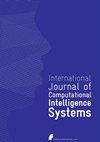Effectiveness of Mixed Fuzzy Time Window Multi-objective Allocation in E-Commerce Logistics Distribution Path
IF 2.9
4区 计算机科学
International Journal of Computational Intelligence Systems
Pub Date : 2023-09-26
DOI:10.1007/s44196-023-00338-y
引用次数: 0
Abstract
Abstract The study of logistics distribution network under e-commerce environment is conducive to the establishment of efficient logistics distribution system, but also to promote the further development of e-commerce and improve social benefits of great significance. This study considers multiple fuzzy factors and introduces a customer fuzzy time window with variable coefficients, establishes a multi-objective set allocation integrated multi-level location path planning model, and proposes an archive type multi-objective simulated annealing improvement algorithm based on master–slave parallel framework embedded taboo search to solve the model. Tabu search and large-scale neighborhood algorithm are used to solve the initial solutions of the first level network and the second level network respectively, and archival reception criterion is introduced to deal with the multi-objective problem. The results of the proposed algorithm for the two-level site-routing problem are less than 6% different from the internationally known optimal solution. The master–slave parallel computing framework improves the efficiency of the algorithm by about 6.38%. The experimental results prove the effectiveness and necessity of the improved optimization. In addition, this study simulates the site-routing problem model constructed by the study by extending the data of standard examples. The experimental results prove the correctness and reference significance of the multilevel site-routing problem model with multiple fuzzy factors.混合模糊时间窗多目标分配在电子商务物流配送路径中的有效性
摘要研究电子商务环境下的物流配送网络有利于建立高效的物流配送体系,也对促进电子商务的进一步发展和提高社会效益具有重要意义。本研究考虑多个模糊因素,引入变系数顾客模糊时间窗,建立了多目标集分配集成多级位置路径规划模型,并提出了一种基于主从并行框架嵌入禁忌搜索的归档型多目标模拟退火改进算法对模型进行求解。采用禁忌搜索和大规模邻域算法分别求解第一级网络和第二级网络的初始解,并引入档案接收准则处理多目标问题。该算法对两级站点路由问题的求解结果与国际上已知的最优解的误差小于6%。主从并行计算框架使算法的效率提高了约6.38%。实验结果证明了改进优化的有效性和必要性。此外,通过扩展标准算例的数据,对研究建立的站点路由问题模型进行了仿真。实验结果证明了多模糊因素多级站点路由问题模型的正确性和参考意义。
本文章由计算机程序翻译,如有差异,请以英文原文为准。
求助全文
约1分钟内获得全文
求助全文
来源期刊

International Journal of Computational Intelligence Systems
工程技术-计算机:跨学科应用
自引率
3.40%
发文量
94
期刊介绍:
The International Journal of Computational Intelligence Systems publishes original research on all aspects of applied computational intelligence, especially targeting papers demonstrating the use of techniques and methods originating from computational intelligence theory. The core theories of computational intelligence are fuzzy logic, neural networks, evolutionary computation and probabilistic reasoning. The journal publishes only articles related to the use of computational intelligence and broadly covers the following topics:
-Autonomous reasoning-
Bio-informatics-
Cloud computing-
Condition monitoring-
Data science-
Data mining-
Data visualization-
Decision support systems-
Fault diagnosis-
Intelligent information retrieval-
Human-machine interaction and interfaces-
Image processing-
Internet and networks-
Noise analysis-
Pattern recognition-
Prediction systems-
Power (nuclear) safety systems-
Process and system control-
Real-time systems-
Risk analysis and safety-related issues-
Robotics-
Signal and image processing-
IoT and smart environments-
Systems integration-
System control-
System modelling and optimization-
Telecommunications-
Time series prediction-
Warning systems-
Virtual reality-
Web intelligence-
Deep learning
 求助内容:
求助内容: 应助结果提醒方式:
应助结果提醒方式:


